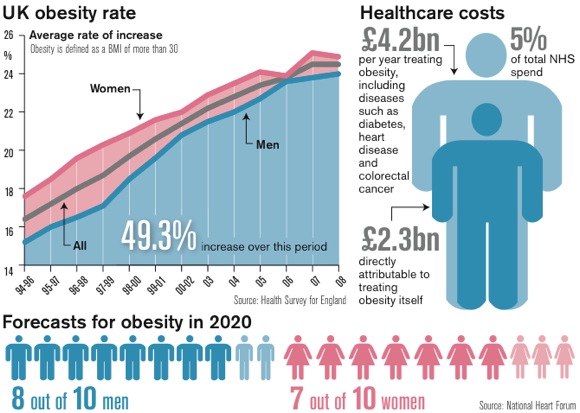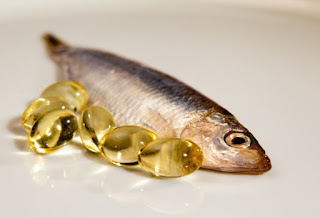Week 6- Too much fat
Too much fat:
According to the World Health Organisation (WHO):
What are the main causes of obesity?
According to the World Health Organisation (WHO):
- Worldwide obesity has more than doubled since 1980.
- In 2014, more than 1.9 billion adults, 18 years and older, were overweight. Of these over 600 million were obese.
- 39% of adults aged 18 years and over were overweight in 2014, and 13% were obese.
- Most of the world's population live in countries where overweight and obesity kills more people than underweight.
- 41 million children under the age of 5 were overweight or obese in 2014.
- Obesity is preventable.
But what is obesity?
Overweight and obesity are defined as abnormal or excessive fat accumulation that may impair health.
Body mass index (BMI) is a simple index of weight-for-height that is commonly used to classify overweight and obesity in adults. It is defined as a person's weight in kilograms divided by the square of his height in meters (kg/m2). BMI is best used as a guide line as it can be inaccurate. For example athletes have a high proportion of muscle, which makes them heavier, as muscle weighs more than fat. This could place them in the overweight or obese categories, when their body fat levels are actually relatively low. A BMI of of over 25 in adults is considered overweight. over 30 is considered obese.
What are the main causes of obesity?
The fundamental cause of obesity and overweight is an energy imbalance between calories consumed and calories expended. Globally, there has been:
- an increased intake of energy-dense foods that are high in fat; and
- an increase in physical inactivity due to the increasingly sedentary nature of many forms of work, changing modes of transportation, and increasing urbanization.
Changes in dietary and physical activity patterns are often the result of environmental and societal changes associated with development and lack of supportive policies in sectors such as health, agriculture, transport, urban planning, environment, food processing, distribution, marketing, and education.
Most of the above information has been taken from the WHO fact sheet on obesity: http://www.who.int/mediacentre/factsheets/fs311/en/
But is is really about too much fat in our diets?
Fat has been demonised for an extended period of time and thousands of "Low-fat" " 0% fat" foods have arrived on the shelves of our supermarkets along with low fat diets, recipes and alternative food suggestions. But fat is only half the answer. Carbohydrates, in the form of sugars and slower release starchy carbohydrates in pasta and bread ect, are also an energy source. An excess of carbohydrates that isn't burnt will also be stored in the body as fat.
Task:
Watch this video: https://www.stem.org.uk/resources/elibrary/resource/32057/tackling-obesity and answer the following questions in the comment section below.
- Who do you think is responsible for tackling the obesity crisis?
- Do you think students weight and BMI should be tracked by schools through childhood and parents contacted to encourage changes in their diet and exercise?
- What do you think should be done to tackle obesity?
- If you were in a position of power what one thing would you do to tackle obesity?





